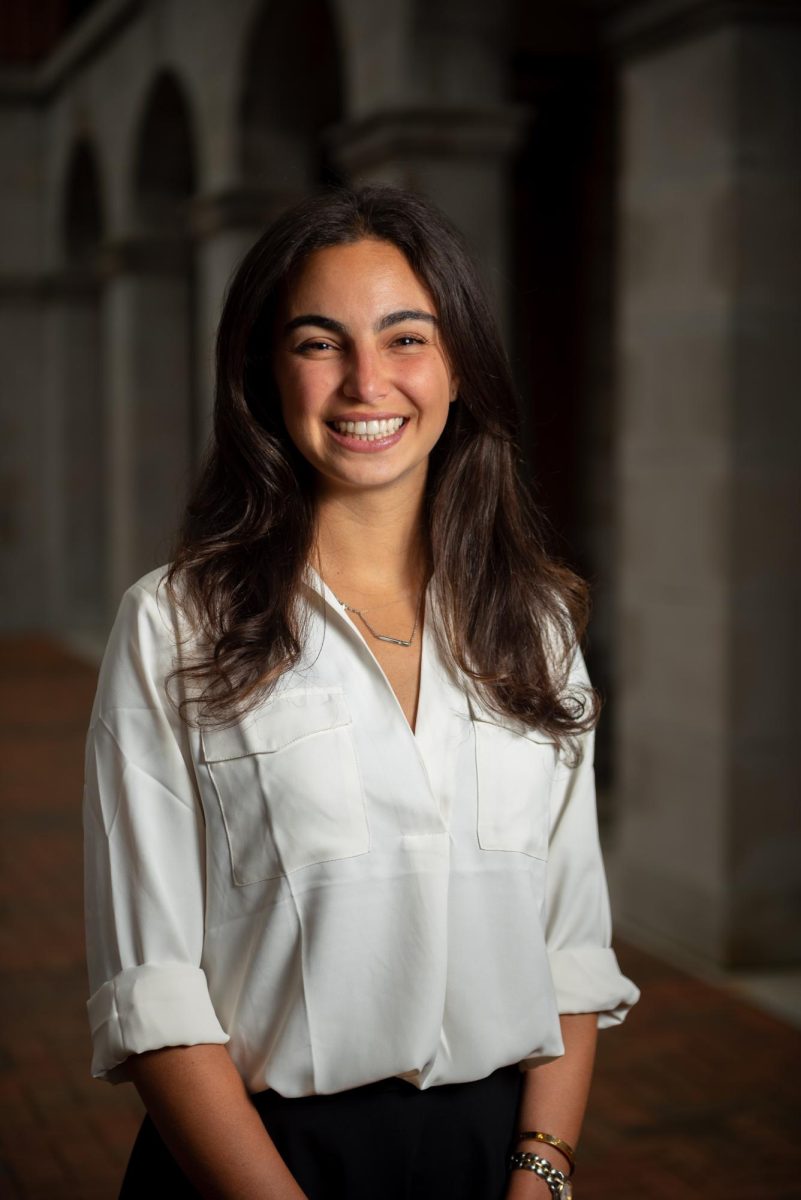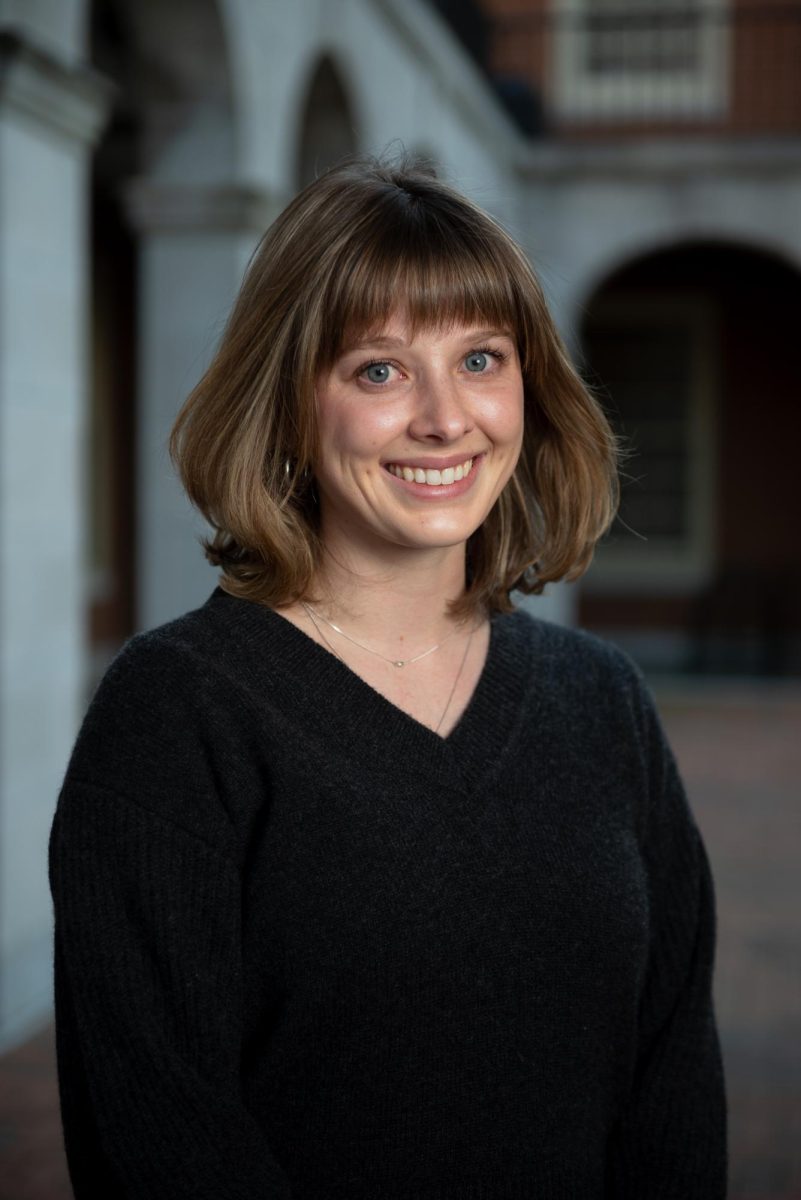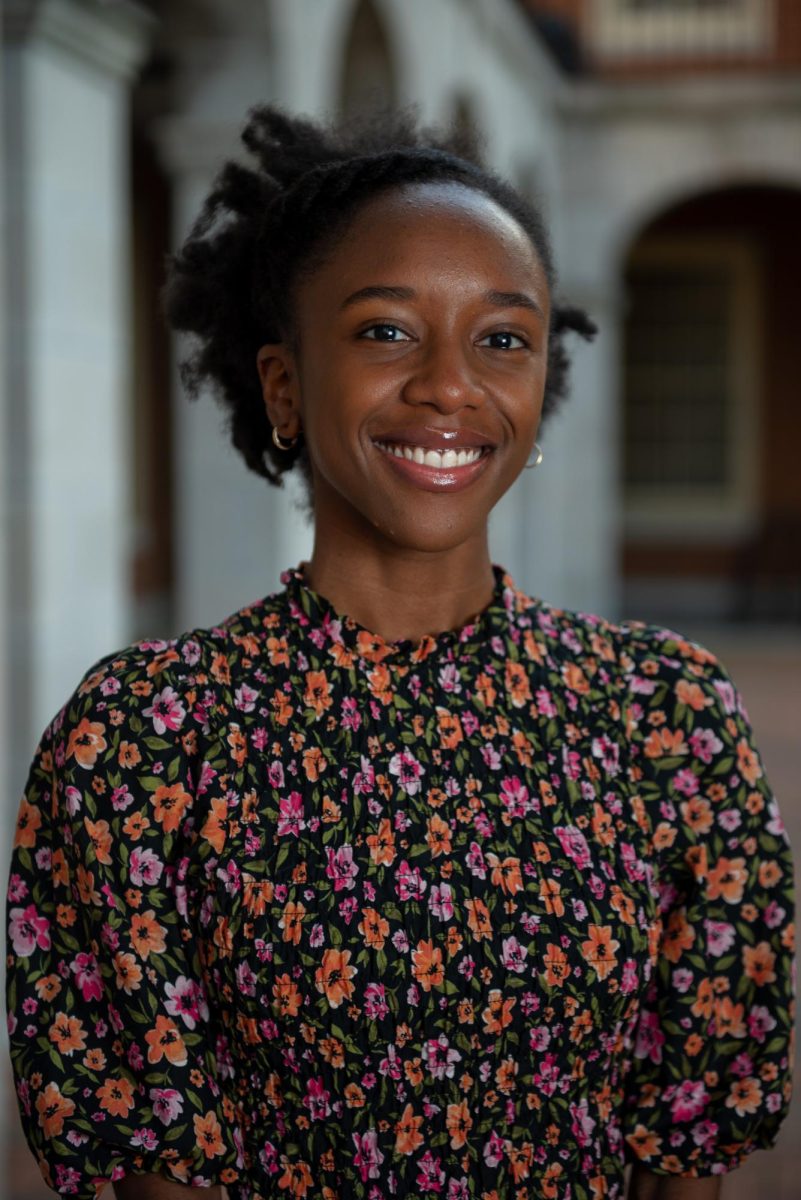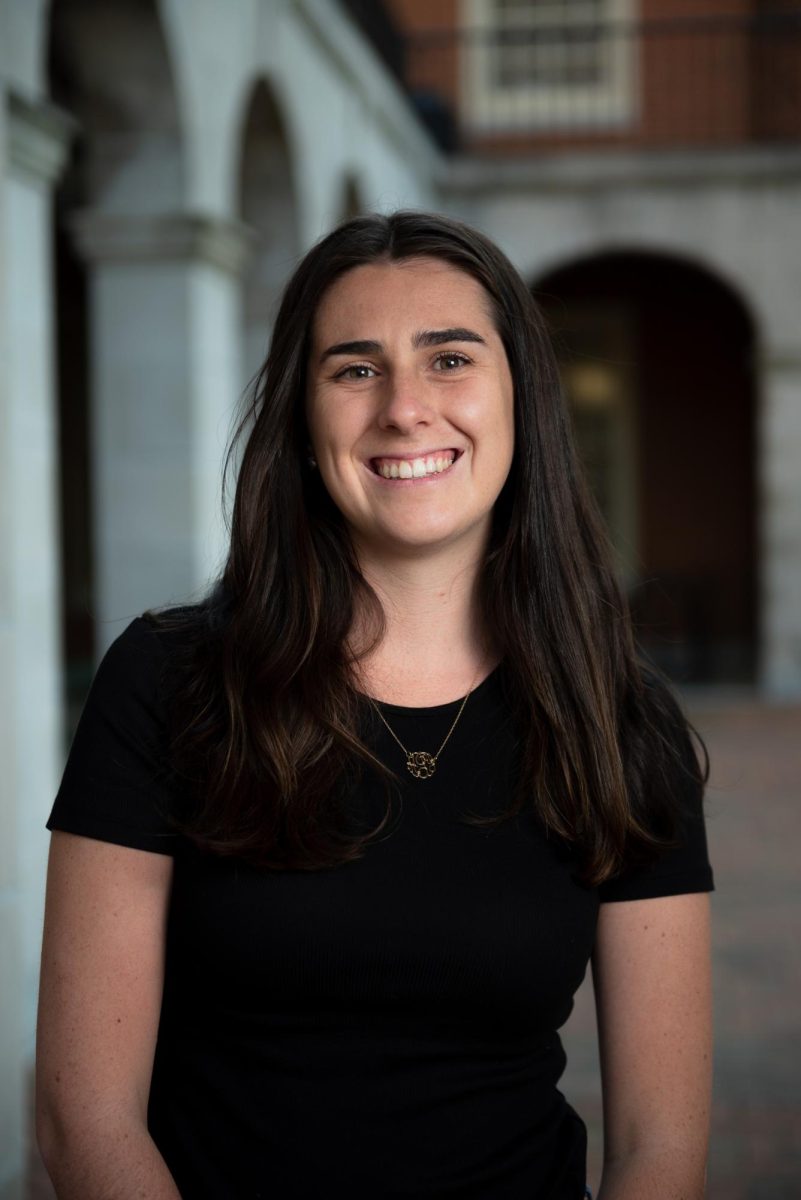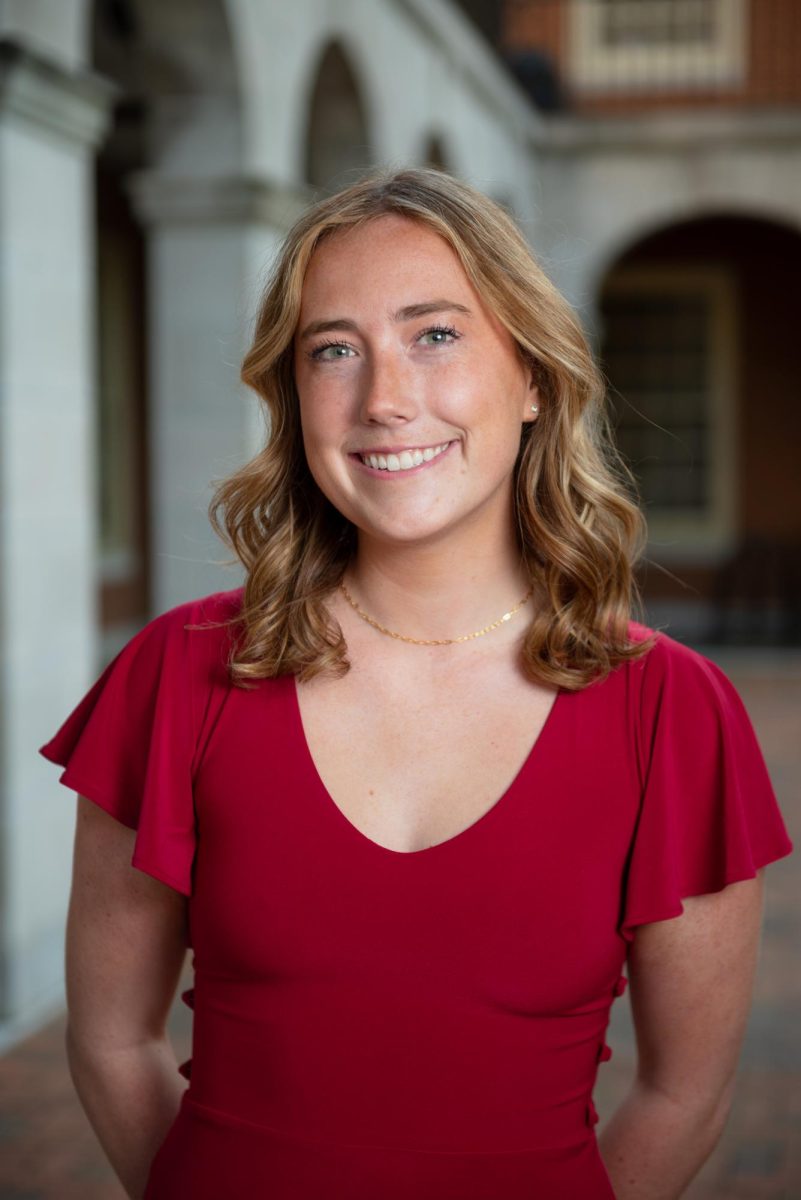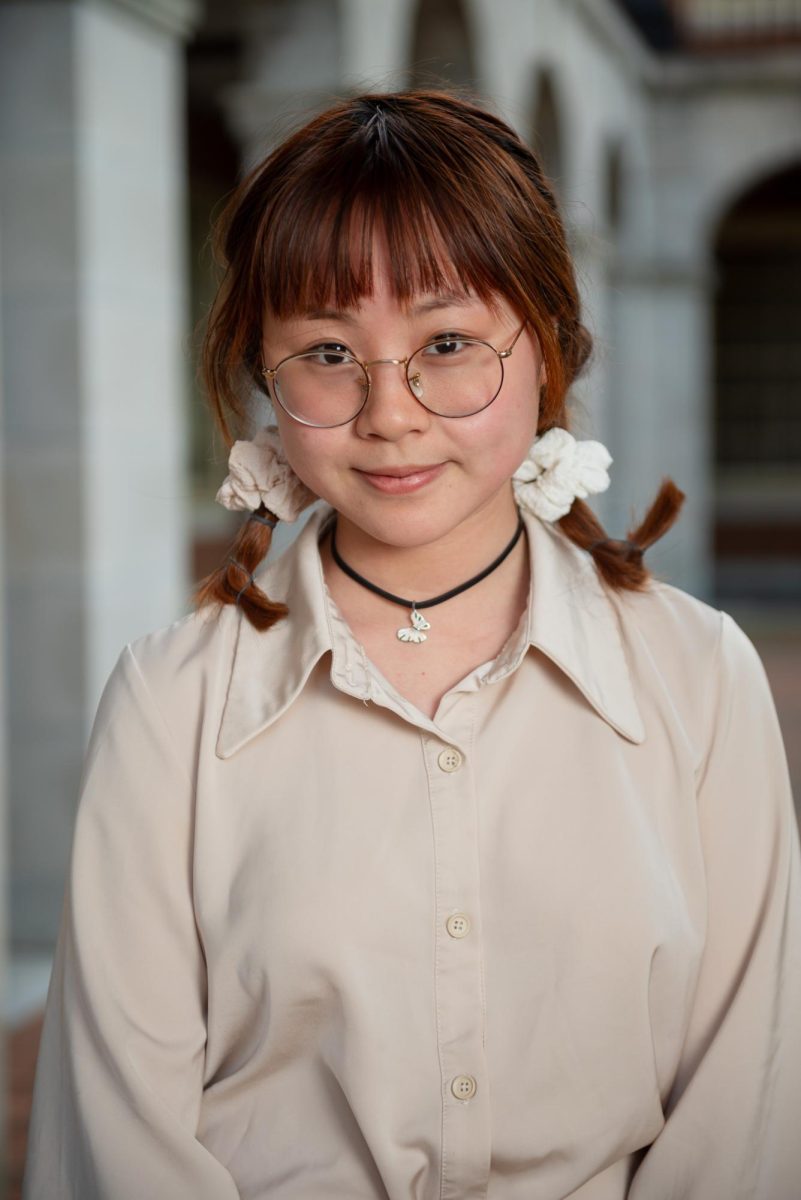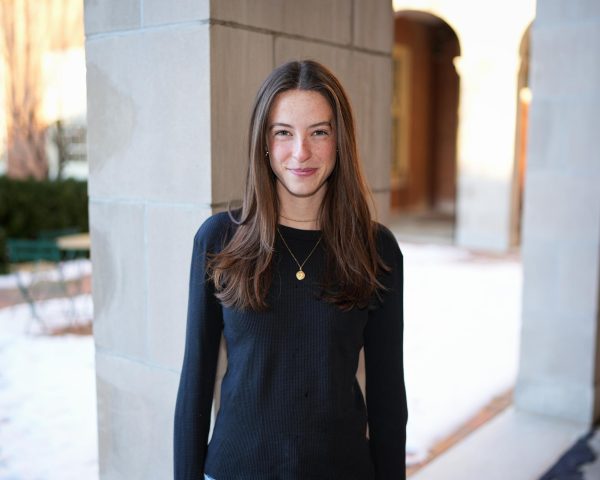Sofia Scordley is a mathematical economics major from New Jersey who always had a keen sense of analysis and math. Before deciding on mathematical economics, she also considered majoring in psychology and neuroscience.
“My first semester, I took Intro to [Psychology] and Intro to [Economics]. I hated psych and I loved econ,” Scordley said. “That was the decision maker.”
When asked if Scordley could remember any moment from her childhood that may have led her to study mathematical economics, she recounted a moment that represented her love and curiosity for education, specifically math. She described her relationship with her grandmother and the ways she inspired Scordley’s love for mathematics.
“I remember we took a little whiteboard and sat in her living room, and she taught me how to do long division by hand,” Scordley said. “I think that kind of fostering of my talent [and] my curiosity was really important.”
When Scordley was asked what her favorite aspect of studying mathematical economics was, this intellectual curiosity and desire to learn was reflected again when she described the satisfaction she feels when she understands a challenging concept.
“I’m a puzzle solver, very much a problem solver. When something clicks for me, it’s like the most magical feeling in the world,” Scordley said. “My junior year math class was, to date, the hardest class that I’ve ever taken. I just remember doing the homework and being like, I don’t understand this. And all of a sudden, just being like, no, I do know how to do this.”
Scordley also recalled the lasting impact that Dr. John Dolan had on her in developing her analytical skills and knowledge, specifically through his Intermediate Macroeconomics course.
I remember even after class, my head would hurt but just because I was paying so much attention, I could almost feel my brain growing in that class,” Scordley said. “He taught me to use that critical thinking side of my brain to apply what was going on in class to the real world.”
When asked if there was anything else Scordley felt like she had anything else left to learn related to Mathematical Economics she expressed her desire to continue seeking out knowledge.
“I feel like [if] I could go back and pay more attention to my econometrics class and be able to apply it to more things, I definitely would,” Scordley said.
However, she continued on to express Wake Forest’s absolute thoroughness in ensuring that their students are fully prepared for the future.
“I do feel like I’ve really gotten the most out of being here and being in my major,” Scordley said. “I feel like they really leave no stone unturned.”
After graduation, Scordley plans on applying her mathematical economics degree towards a job at UBS in wealth management, while also preparing for her wedding. She expressed the comfort she finds in only knowing what the next immediate step in her life holds, instead of dwelling on the unknown.
“It’s really exciting for me that I know a lot of my co-workers from my internship, and getting married is going to be really fun. That will be starting a whole new chapter of life all at once,” Scordley said. “I will say that not knowing the next steps is a little scary, but I’ve never really known the steps in advance. I’ve only just kind of known the next step in front of me, so I know that that’s enough for right now.”



